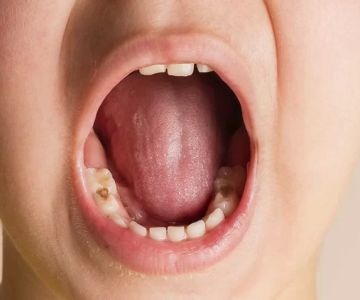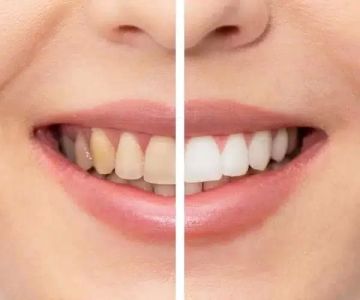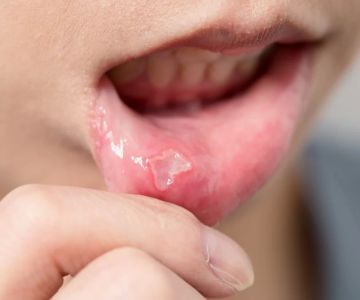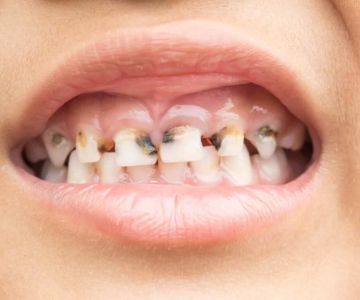How to Treat Gum Inflammation: A Guide to Soothing and Healing
Gum inflammation, also known as gingivitis, is a common issue that many people face at some point in their lives. If left untreated, it can lead to more serious dental problems like periodontitis. Fortunately, treating gum inflammation is not as complicated as it may seem. With the right knowledge and tools, you can alleviate the discomfort and prevent further damage to your gums. In this article, I’ll walk you through how to identify gum inflammation, the causes behind it, and most importantly, how to treat it effectively with both professional care and natural remedies.
1. Identifying Gum Inflammation: Symptoms and Signs
Before we dive into treatments, it’s important to first understand the signs and symptoms of gum inflammation. Recognizing these early on can help prevent the condition from worsening. Typically, gum inflammation presents itself through the following symptoms:
- Redness or Swelling: Healthy gums are typically a pale pink color, so if they appear red or swollen, it’s a sign of inflammation.
- Bleeding: You may notice your gums bleeding, especially when brushing or flossing your teeth.
- Pain or Tenderness: Inflammation can cause discomfort when touching or chewing food.
- Bad Breath: Persistent bad breath, also known as halitosis, is often a sign that gum inflammation is present.
If you are experiencing any of these symptoms, it’s important to take action as soon as possible to avoid further complications.
2. Causes of Gum Inflammation
There are several factors that can lead to gum inflammation, and understanding them is crucial in preventing it in the future. The most common cause is poor oral hygiene, which leads to the buildup of plaque—a sticky film of bacteria that forms on your teeth and gums. Here are some common causes:
- Poor Oral Hygiene: Not brushing or flossing regularly can allow plaque to accumulate and irritate your gums.
- Smoking: Smoking or chewing tobacco weakens your immune system and makes it harder for your gums to heal.
- Medications: Certain medications, such as those that cause dry mouth, can increase the likelihood of gum inflammation.
- Health Conditions: Conditions like diabetes or certain viral infections can make your gums more prone to inflammation.
- Hormonal Changes: Changes in hormone levels, such as during pregnancy, menstruation, or menopause, can make your gums more sensitive and susceptible to inflammation.
3. Professional Treatments for Gum Inflammation
If you’re experiencing severe gum inflammation, it may be best to seek professional dental treatment. A dentist can provide targeted treatments to help manage and treat the condition:
- Scaling and Root Planing: This deep cleaning procedure removes plaque and tartar from below the gum line and smooths out the root surfaces to encourage gum reattachment.
- Antibiotics: If your gum inflammation is caused by a bacterial infection, your dentist may prescribe antibiotics to clear it up.
- Gum Surgery: In extreme cases, surgery may be necessary to remove damaged tissue or restore gum health.
4. Natural Remedies and Home Care Tips for Gum Inflammation
If you’re looking for ways to treat gum inflammation at home or in conjunction with professional care, there are several natural remedies and lifestyle changes you can implement to improve your gum health:
4.1 Use Salt Water Rinse
One of the easiest and most effective home remedies is using a saltwater rinse. Simply mix a teaspoon of salt into warm water and swish it around your mouth for 30 seconds. Salt water helps to reduce inflammation and promotes healing of your gums. This rinse can be done twice a day for relief.
4.2 Apply Aloe Vera Gel
Aloe vera has natural anti-inflammatory and antibacterial properties, making it ideal for soothing irritated gums. Applying a small amount of aloe vera gel directly to your gums can provide relief from inflammation and promote healing. You can also rinse your mouth with aloe vera juice if gel is not available.
4.3 Oil Pulling with Coconut Oil
Oil pulling is an ancient practice that involves swishing oil around in your mouth to remove bacteria. Coconut oil is especially beneficial for gum health due to its antibacterial properties. Swish a tablespoon of coconut oil around your mouth for 15-20 minutes, then spit it out and rinse your mouth with warm water.
4.4 Stay Hydrated
Drinking plenty of water is essential for your overall oral health. Water helps wash away food particles and bacteria that may contribute to gum inflammation. It also helps maintain moisture in your mouth, reducing the risk of dry mouth, which can aggravate gum problems.
5. Importance of Regular Dental Visits
While home remedies can help alleviate mild gum inflammation, regular visits to the dentist are crucial for maintaining healthy gums and preventing more serious issues. A dental professional can clean areas that are difficult to reach with brushing and flossing, check for signs of gum disease, and provide early intervention before inflammation worsens.
Remember, prevention is key. By practicing good oral hygiene—brushing twice a day, flossing regularly, and visiting your dentist for checkups—you can keep your gums healthy and reduce the risk of inflammation in the future.







 Westgate Dental Arts
Westgate Dental Arts Coventry Family Dental
Coventry Family Dental Familia Dental
Familia Dental Dr. Daniel S. Fife, DDS
Dr. Daniel S. Fife, DDS Dentistry At Suburban Square: Michael I. Wollock, DMD
Dentistry At Suburban Square: Michael I. Wollock, DMD Comfort Care Dental
Comfort Care Dental The Importance of Oral Health Education During Pregnancy for a Healthy Pregnancy
The Importance of Oral Health Education During Pregnancy for a Healthy Pregnancy Why Skipping Dental Checkups Can Lead to Bigger Oral Health Problems
Why Skipping Dental Checkups Can Lead to Bigger Oral Health Problems Advantages of Porcelain Dental Restorations
Advantages of Porcelain Dental Restorations Best Tips for Brushing Your Teeth Properly for Healthy Gums: Essential Techniques for Oral Health
Best Tips for Brushing Your Teeth Properly for Healthy Gums: Essential Techniques for Oral Health How Can Diabetes Cause Tooth and Gum Problems? Preventing and Managing Oral Health Issues
How Can Diabetes Cause Tooth and Gum Problems? Preventing and Managing Oral Health Issues Healthy Habits for Promoting Good Oral Health and Hygiene: Tips for a Healthy Smile
Healthy Habits for Promoting Good Oral Health and Hygiene: Tips for a Healthy Smile